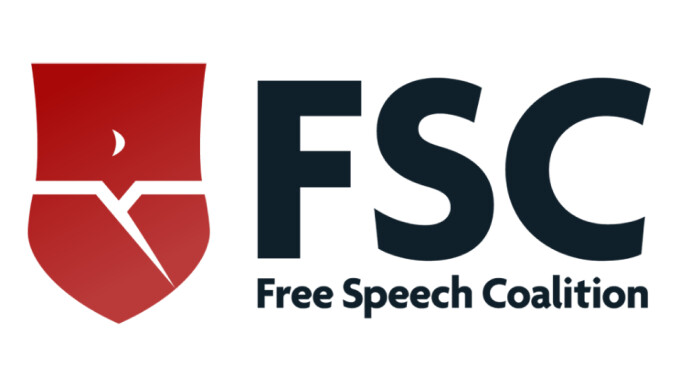LOS ANGELES — The Free Speech Coalition (FSC) has published an advisory article for adult websites operating in Kansas, following several private lawsuits filed under the state's age verification law.
The article follows:
In four lawsuits filed on May 12, 2025, a minor identified as Q.R., through his mother, claims he accessed adult sites in Kansas without encountering legally compliant age verification protocols. They are suing four different sites for approximately $14 million in damages. This is the first known lawsuit filed by a private party on the basis of a state age verification law.
Who is Suing
The plaintiffs are represented by the so-called National Center on Sexual Exploitation (formerly Morality in Media), which has campaigned for decades to abolish the adult industry. The NCOSE Law Center is involved in numerous other legal suits against adult platforms, which they use to raise funds for and garner attention to their pro-censorship agenda.
What the Lawsuits Allege
The plaintiffs allege that Q.R.'s mother installed filters on his personal devices, but claim the minor was still able to access adult sites using an old laptop in his mother’s closet that did not have a filter installed.
Over a period of several months, he allegedly accessed adult sites more than 175 times. The lawsuit claims that adult sites are liable for damages of approximately $75,000 for each time Q.R. visited a site. While Kansas law provides statutory damages of $50,000 for violations of the law, plaintiffs are asking for additional damages citing “pain, suffering, disability, disfigurement and mental anguish,” “psychological injury,” “past and future loss of enjoyment and pleasure of living,” and “past and future necessary medical expenses.”
As of yet, no evidence to support these allegations has been provided.
Violation of Kansas' Age Verification Statute
All four lawsuits lead with the same count: failure to deploy a “commercially reasonable” method to verify both age and identity before allowing access to material harmful to minors in violation of the state's age verification law."Unconscionable Acts" Under the Kansas Consumer Protection Act
Each complaint adds a second count, labeling the sites’ behavior unconscionable because they knowingly took advantage of a minor’s inability to protect himself online and ignored clear statutory duties.Deliberate Targeting and Monetization of Kansas Users
In order to make a legally binding judgment against a defendant, a court must have what's called "personal jurisdiction" over that defendant. Courts have personal jurisdiction over entities located within their own states, but they cannot exercise authority over defendants in another state unless the defendants have some connection with the state, in this case, Kansas.The plaintiffs allege that the defendants took the following actions, therefore subjecting them to personal jurisdiction in Kansas:
- Geotargeting ads to Kansas users.
- Monetizing ads shown to Kansas users.
- Employing a CDN with nodes in Kansas to ensure high-speed access for Kansas users.
- Allowing users to filter search results to models based in Kansas.
- Selling subscriptions or tokens to Kansas users.
While plaintiffs allege that the named defendants satisfy the personal jurisdiction test, it remains to be seen whether these allegations are true and, if so, are enough to establish a connection to the state.
Potential Exposure
The plaintiffs claim that Q.R. has or will suffer psychological injury, pain and suffering, lost enjoyment of life, and future medical costs because he viewed sexually explicit content as a teen. If the allegations are proven, the court must award a minimum of $50,000 per website visit under the age verification law and a maximum of $10,000 per visit under the Consumer Protection Act. Both laws also require a losing defendant to pay the plaintiffs' attorneys' fees. On top of this, the plaintiffs may be awarded damages to compensate their losses or merely to punish the defendants ("punitive damages").
Are You at Risk?
If your website is accessible in the state of Kansas, or other states that have passed age-verification laws, you may be at risk, particularly if you are not employing “commercially reasonable” age-verification protocols. Consult with your attorney to determine if you are at risk.
For more information, visit FreeSpeechCoalition.com.








